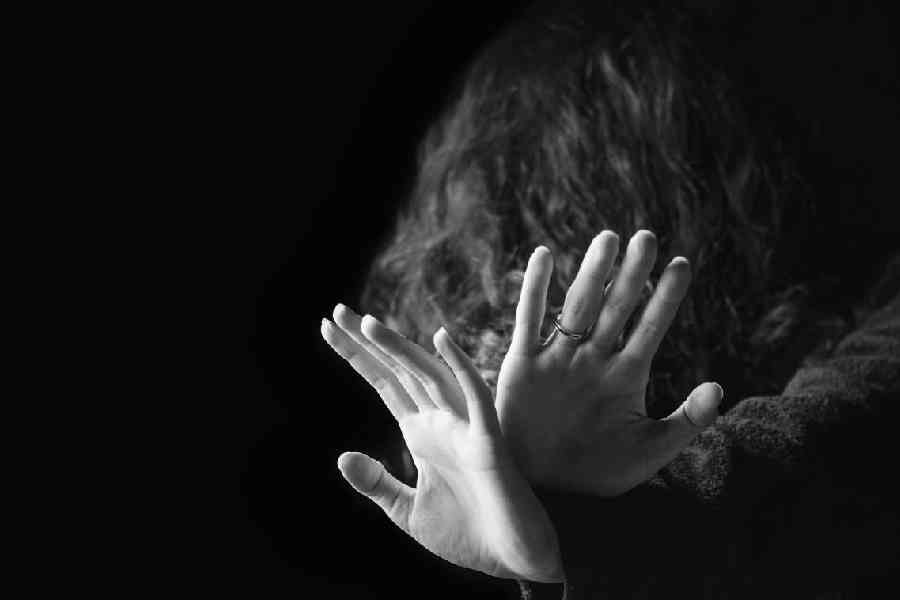Q When a rape takes place within an institution premises, be it a college or a hospital, does it say something more about the mindset of a rapist?
No, no, it is the same. Most rapes are not about sexual gratification. No matter what we call it, hate rape, anger rape, it is about foregrounding the rapist’s power. Today, many of our institutions have become arenas of power play. Power with its privileges, power without responsibility. Power without accountability.
Q Is there such a thing as the mindset of a rapist?
Rapists want to exert power, they want to inflict pain, they are possessed of a sexual animus. Easily available pornographic material perhaps feeds these traits. Rapists have certain personality traits — antisocial personality, narcissistic personality, lack of remorse, manipulative, lacking in empathy, very impulsive, lack of self control… In my observation, in recent times I have seen a hyper masculinity at work in some of them. It seems to me that there is some kind of alienation afoot in urban society. And in the absence of community monitoring, the sense of morality is shrinking. As a society, we have accepted violence. Overall a rape culture has been fostered. Sexist jokes are common, online trolling too and its idiom of harassment. All of it adds up. And then of course there is the enduring fear of stigma on the rape victim’s part.
Q Often people express surprise on hearing of a rape in Calcutta. Why is that?
According to National Crime Records Bureau data, Delhi is the rape capital. There is high reporting of rape. Calcutta is supposed to have the least number of reported rapes. The data should not be interpreted to mean that Calcutta is safer. It could also mean there are greater barriers to the reporting of rape here. It may well be that victim blaming, victim silencing is more common here. Perhaps we are more patriarchal here than we would like to accept.
Q I had asked you at the outset how a rape within the premises of an institution is different from a rape elsewhere. In Bengal, we can never forget Bantala and Birati. You have studied the mind of rapists; have the machinations of a rapist’s mind changed over the years?
When Bantala happened in the 1990s, the government was not very critical of it. “These things can happen,” is what the then CM had said. When we normalise rape, we also increase the chances of a repeat. A pro-rape culture is created. And we are urban creatures, when a crime like rape happens in a city it makes big news. But remember, in our villages, this is possibly a way of life. It has been normalised to that extent.
Q But what can we teach our children to check this situation from getting worse?
We constantly tell the girls what to do, but the time has come to teach the boys some things. We need to tell our boys that this is a criminal act and one that comes with serious consequences. But then as a society we are hypocritical. We are very coy about sexual education. If we were not so coy and not so casual and if we conveyed to our boys and girls effectively and early on that sex is supposed to be a mutually pleasurable activity and not a power play, then things might have been different. Instead, the source of sex education is pornography. Listen to our colloquial terms for sex and the slangs so commonly used, they indicate inflicting pain on the woman. And by verbal repetition, sex and pain and power play and by association rape becomes normalised.
Q So you are saying...
I am saying we have to be more alert. Be it as individuals or as institutions. We have to create a system of complaints and redressals.
Q Is there anything else that you want to say?
There is, though I don’t have enough evidence to support this. Psychologically, our men seem to be developing a masculinity crisis. There is a lot of unemployment all around, a lot of frustration, and in this situation, there is a lot of anger towards women who are seen as stealers of opportunities, which traditionally belonged to men. The other thing I would like to say is that we have to think about the trauma of the raped also, trauma beyond the physical violation. Alongside redressal and medical examination, there should be counselling as well. There should be a network of social workers and doctors and the effort should be supported by the government. There should be counselling for the rapist as well. Many of them don’t get life-terms, so we need to think about what happens when they re-enter society. All in all, we are all aware of the toxic culture. Instead of tolerating it, it is about time we make an attempt to change it. There are cultures and countries — the Scandinavian countries for one — that have achieved this and checked the incidence of rape. It is not enough to be shocked, surprised or aggrieved, we have to work out a way forward for both sexes.











